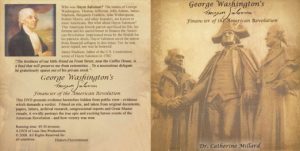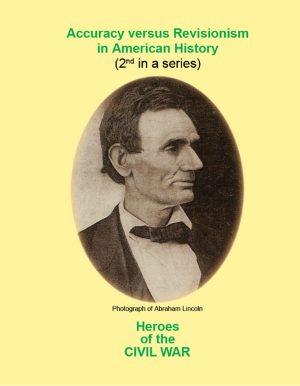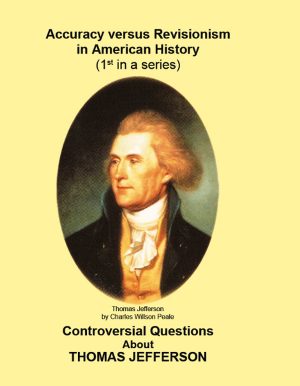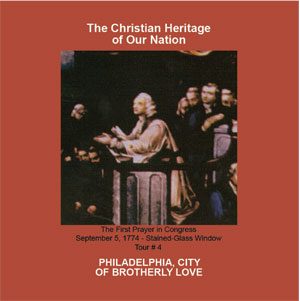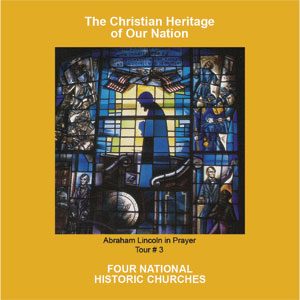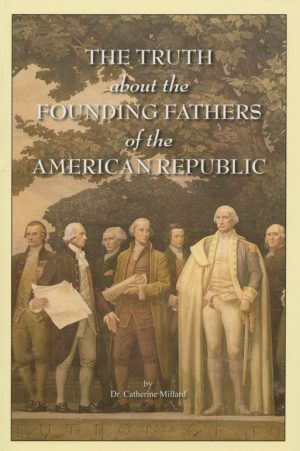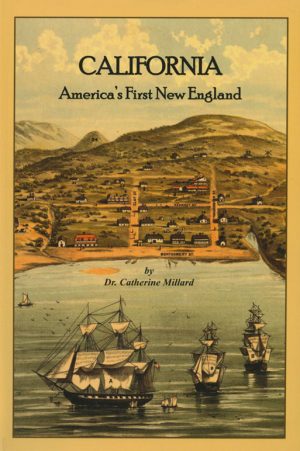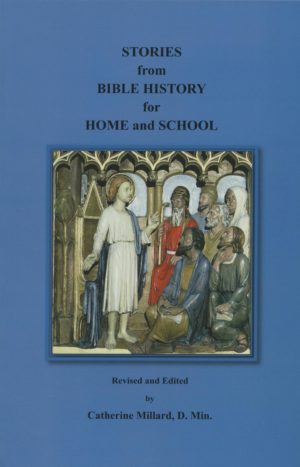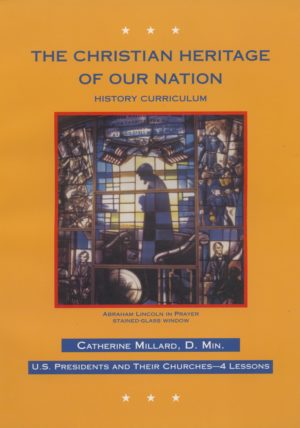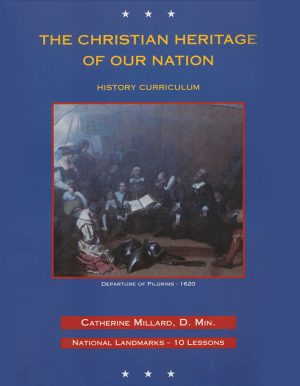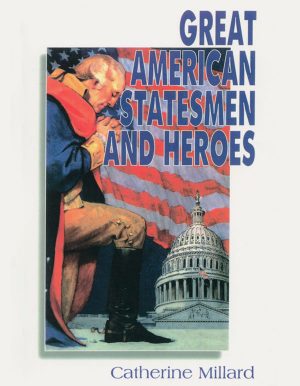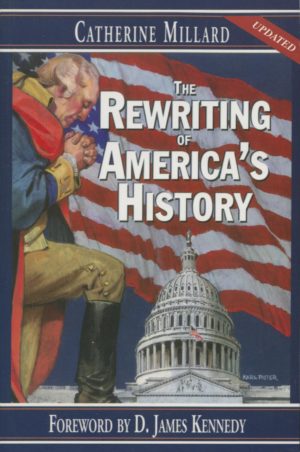Another hero of America’s history is Thomas (Stonewall) Jackson. Born in 1824 at Clarksburg, West Virginia, he greatly impressed those who knew him with his discipline, caliber and Christian characteristics, for which he was unsurpassed.
Jackson’s lawyer father died when he was quite young, leaving his wife with two sons and a daughter to support. Mrs. Jackson is reputed to have been a woman of faith in God and of biblical understanding, bringing this zeal and fervor for Christian values into the life of young Stonewall and his siblings. Jackson never forgot his mother, always referring to her in later years with deep love and gratitude. After his mother’s remarriage, Jackson and his brother were sent to live with an uncle. But receiving bad treatment from his uncle, young Jackson bundled up his belongings, hung them over his shoulder on the end of a stick, and walked seventeen miles to the home of another uncle.
At the age of 19, he made application to fill a vacancy at West Point, and was accepted in July, 1842. It is recorded that he would study late into the night by the light of a fire, lying upon the floor after “lights out,” in order to show himself approved in his work. After much hard work and determination, Jackson graduated seventeen in a class of seventy.1 Although regarded by fellow students as somewhat of an oddity in manners and appearance, Stonewall soon gained their allegiance through his Christian forbearance and outgoing personality. When the war broke out in 1845 between the United States and Mexico, Jackson showed great initiative, for which he was brevetted major. In 1851, he became a professor in the Lexington Military Institute, a post he held for ten years.
Civil War Fame
The election of Abraham Lincoln to office on March 4, 1861, as President of the United States, brought an opponent of slavery into the White House. On April 13, the Confederate capture of the Federal Fort Sumter at Charleston, South Carolina, led to a state of war. The Confederates, or southerners, numbered about six million whites. The command of the sea gave considerable advantage to the Union armies, giving them the usual benefit of an extensive base. It was thus almost impossible to completely intercept them.
On April 29, 1861, Colonel Jackson took command of 4,500 men at Harper’s Ferry. On November 1, 1861, Jackson, with the rank of Major General, was appointed to the command of the Shenandoah Valley in which position he fully realized the importance of controlling the Baltimore and Ohio Railway.
Jackson excelled in “secrecy and surprise” of which Napoleon, Hannibal and Wellington were masters. His superiority of the regular in battle appeared in the Mexican campaign, and at the two battles of Bull Run and at Gaines’ Mill. He also understood the value and importance of using initiative. His expertise in the use of cavalry, the strategic arm before battle, were: scouting, screening, pursuing, charging and perhaps raiding. Jackson made it his constant practice to study his opponent’s character. He was well versed in the use of strategic positions in warfare, thereby gaining frequent advantage over his adversary.
The above reflects Jackson’s tactics and exploits as a true military genius, a product of West Point Military Academy.
Following are excerpts from Jackson’s personal correspondence which show the inner man and nature:
Lexington, Virginia 1852
To his Aunt
Mrs. Clementine (Alfred) Neale:
…The subject of becoming herald of the cross has often seriously engaged my attention, and I regard it as the most noble of all professions. It is the profession of our divine Redeemer, and I should not be surprised were I to die upon a foreign field, clad in ministerial armor, fighting under the banner of Jesus. What could be more glorious? But my conviction is that I am doing good here; and that for the present I am where God would have me. Within the last few days I have felt an unusual religious joy. I do rejoice to walk in the love of God.2
The above depicts his foremost adherence to the cross of Christ, having frequently contemplated “the most noble of all professions,” that of becoming a full-time minister, preacher or herald of the way of salvation through Christ Jesus. He concludes that God’s perfect will for his life presently is where he stands and rejoices in his calling.
Jackson was a consistent Christian man. He was a constant attendant on preaching and he taught a class of black children in the Sunday school at Lexington.
After receiving news of the victory of Manassas, the Reverend Dr. White of Lexington read a letter from Jackson to the people gathered around to hear the result of the battle:
My dear Pastor:
In my tent last night, after a fatiguing day’s service, I remembered that I failed to send you my contribution for our colored Sunday School. Enclosed you will find my check for that object, which please acknowledge at your earliest convenience and oblige yours faithfully,
T. Jackson3
It is reported that at General Jackson’s death, seven million people throughout the South went into mourning. Says Colonel R.P. Chew, Chief of Horse Artillery, Army of Northern Virginia, in his address delivered at the Virginia Military Institute on June 19, 1912:
He was a Christian without fanaticism, a Christian in the open; one who did not hesitate in the presence of assembled thousands to pause on the eve of some great enterprise and raise his hand aloft, invoking the blessing of Divine Providence upon his efforts and those of this soldiers. He rose superior to human infirmity and was proof against the temptations of this life…while his strategy was as brilliant, his tactics as effective, he had achieved a victory that could be accorded to no one of these great commanders, (Caesar, Bonaparte, Marlborough and Wellington), he had made himself complete and absolute master of himself. Possessed of perfect poise of mind and temperament, his character adorned with every moral and manly attribute, endowed with every Christian virtue…4
General Robert E. Lee showed love and admiration for Jackson when, at the news of his death, he stated: “I have lost my right arm.” 5
Memorial to Stonewall Jackson
The National Cathedral in Washington, D.C., immortalizes the life of Stonewall Jackson with an inspiring stained-glass window. It depicts this American son kneeling on the battlefield, reading his Bible. The caption underneath reads thus:
To the glory of the Lord of Hosts whom he so zealously served and in honored memory of Thomas Jonathan Jackson, Lieutenant General C.S.R. Like a Stone Wall in his steadfastness, swift as lightning and mighty in battle, he walked humbly before his Creator, whose Word was his guide. This Bay is erected by the United Daughters of the Confederacy and his admirers from South and North.
To learn more,click here.
____________________
Bibliography:
1 Cook, Roy Bird. The Family and Early Life of Stonewall Jackson Charleston, WV: Education Foundation, Inc., 1967, pp. 64-65.
2 Gittings, John G. Personal Recollections of Stonewall Jackson. Cincinnati: The Editor Publishing Company, 1899. P. 32.
3 Ibid., p. 65
4 Chew, Colonel, R.P. An Address on Stonewall Jackson. (Delivered at the Virginia Military Institute, Lexington, on the unveiling of Ezekiel’s Statue of General T.J. Jackson, June 19, 1912). Lexington: Rockbridge County News Print, 1912, pp. 61, 62.
5 Ibid.

